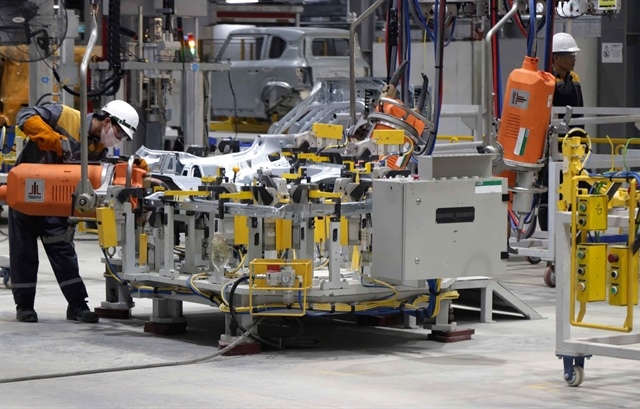Vietnam strings out yarn forward rule
Vietnam strings out yarn forward rule
Vietnam may be allowed to stretch-out its implementation of the yarn-forward rule for the garment and textile industry if it joins the currently under-negotiation Trans-Pacific Partnership.

Minister of Industry and Trade Vu Huy Hoang said at the bi-annual Vietnam Business Forum held in Hanoi two weeks ago that Vietnam had asked the proposed Trans-Pacific Partnership (TPP) members for a ‘transformation roadmap” in implementing the yarn-forward rule, or rule of origin, to the country’s garment and textile industry.
“This proposal has been accepted in-principle by other countries,” said Hoang, implying that it could be approved once the TPP takes effect in the future.
“This means that in five years, or maybe more, if the garment and textile supporting industry is still underdeveloped, other TPP nations would still allow Vietnam to enjoy tax preferences under the TPP despite its importing yarns and fabrics from non-members,” said Hoang.
He said Vietnam introduced the proposal because the country was at a lower level of development than other TPP members. Therefore, it would be very difficult for the country to immediately implement the yarn-forward rule.
The TPP is a free trade agreement currently being negotiated by 12 countries including the US, Australia, Malaysia, New Zealand, Singapore, Japan, Mexico, and Vietnam.
The yarn-forward rule, under the TPP, requires that the yarns, fabrics and final garments exported within the TPP are produced in TPP countries. If Vietnam’s proposal is approved, it would allow garment and textile companies to export apparel made from yarn and fabric imported from non-member countries such as China, duty free to the US and the TPP markets.
Hoang admitted that the yarn-forward rule was essential to preventing external players from benefiting from the agreement. However, he noted that Vietnam needed time to prepare.
“While implementing the roadmap, Vietnam has to urgently boost its supporting industry for the garment and textile sector. This is an opportunity for foreign investors to get into yarn and fabric manufacturing projects in Vietnam,” said Hoang, adding that Vietnam would welcome all foreign investors interested in this industry.
With its advantage of cheap labour, Vietnam is one of the biggest garment and textile exporters in the world. The country is an important manufacturing base of many brands such as Nike and Adidas.
Since Vietnam started negotiating the TPP, many foreign investors have announced they would increase their investments into the country’s garment and textile industry to enjoy duty-free exports to the US market and other TPP member states.
For example, South Korea’s Hyosung, the largest spandex producer in the world, announced it planned to invest an additional $50 million in the southern province of Dong Nai to expand production. China’s Texhong Group has also invested in a $300 million textile factory in the northern province of Quang Ninh with a similar expectation of benefiting from the TPP.
vir






















